Dental implants with their crowns look, feel, and function like your natural teeth, but for durability, some additional attention is required while cleaning the dental implants. Maximizing plaque removal from implanted teeth before the crowns are in place starts the day of the implant procedure. Even though the dental implant area will be sore and sensitive for some days, cleaning dental implants is a top priority to ensure that plaque and bacteria do not have the option to form and fix to either the implant or the gum line.
To better maintain dental implants, patients should clean their teeth twice daily with a soft-bristled toothbrush and floss once a day. Although you must brush thoroughly to remove plaque effectively, it is essential to be gentle enough not to damage your gums. Implant patients should also use a low-abrasive and tartar-control toothpaste. Losing your teeth can be an incredible experience with severe results for your overall health. Fortunately, you have an excellent substitute for replacing lost teeth and establish both appearance and teeth functions. One such option is a fixed bridge assisted by dental implants. While implants are widely known for single tooth replacement, they can also be used with other repairs like bridges. In this case, the dental bridge is screwed into a few properly-placed implants to assist it. Implants can give bridges with more security and support without altering adjacent teeth used for traditional tooth replacement. They may also be unhurried or stop bone loss because the titanium in implants naturally fascinates bone cells that develop and adhere to its exterior and provide stimulation to the bone cells during a function. Because of these profits, an implant-supported bridge could be a life-changer that provides years of satisfaction. But we can’t only “set them and forget them”: They need dedicated oral hygiene just like your natural teeth.
While the dental bridge materials and dental implants themselves are in no danger from disease, the same can’t be said for the implant’s assisted gums and bone. Dental plaque, the main driver of gum disease, can place these tissues at risk for infection, eventually leading to implant failure. It’s essential, then, for you to floss around your new dental implants to eliminate any plaque. This differs from consistent flossing, in which you work the connection between teeth. Instead, you’ll have to keep flossing between the dental bridge and gums with the support of a floss threader, a small, slender means with a loop at one end and a more rigid plastic edge at the other (similar to a sewing needle).
The following are some tips to remove plaque and tartar from dental implants:
- Brushing teeth: While the implant area is restored, the dentist may advise the patient not to use a toothbrush in that area of the mouth but to use an antibacterial gel for a few days. Following the initial curing period, a very soft toothbrush with antibacterial toothpaste can gently clean dental implants. Maximizing plaque elimination from dental implants is a significant measure to prevent peri-implantitis, a condition that results in losing bone and weakening of the implant anchor.
- Thorough flossing: Flossing is another critical step in an at-home, daily dental cleanliness routine. Flossing around and between all your teeth, especially teeth next to implants, helps ensure an individual increases plaque bacteria elimination from dental implants. After the dental crowns are in place, the daily oral hygiene routine will include flossing thoroughly between the teeth and the implant crown’s base. As an extra measure for enhancing plaque removal from dental implants, the dentist may recommend using a water flossing machine to reach those parts that regular floss and a toothbrush cannot reach between teeth and dental implants.
- Cleaning dental implants: The dental implants can last a lifetime when individuals follow a daily, at-home dental hygiene routine in addition to frequently scheduled dental checkups and teeth cleanings. The use of antibacterial toothpaste and oral rinses adds a layer of extra safety against plaque and bacteria that stay active all day long. Not all toothpaste and rinses have antibacterial ingredients, so it is essential to read the product labels. The Colgate Professional Products site provides helpful information about the maintenance and care of dental implants.
If you would like to learn more about proper care for implant-supported restorations, please connect with us to schedule an appointment at Implants Pro Center, San Francisco. Choosing Dr. Ali for all your implant dentistry needs won’t disappoint you ever. We are always here for a consultation at your convenience. You can know more about dental implants and our treatment approaches by booking an appointment with us. At Implants Pro Center©, we accept all the primary dental and medical PPO insurances and also Medicare, thereby reducing your anxiety about the expense of various dental implant treatments. We have a much experienced and caring team for your life-long care, maintenance, and dental assistance. Implants Pro Center© is also furnished with modern technologies like CT-Scan, Intravenous Sedation, Platelet Rich Fibrin, etc., to provide you nothing less than the best services ever!

